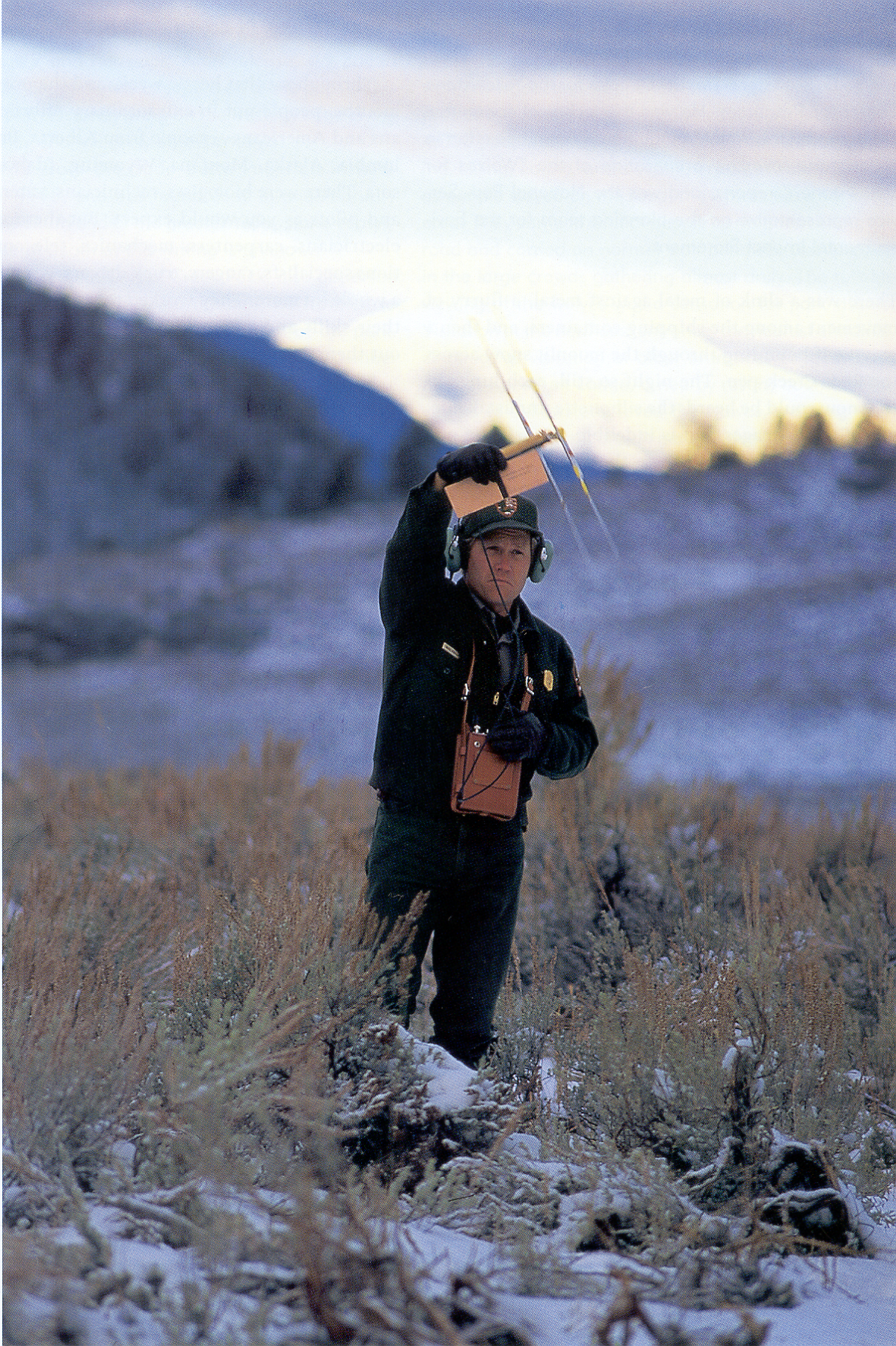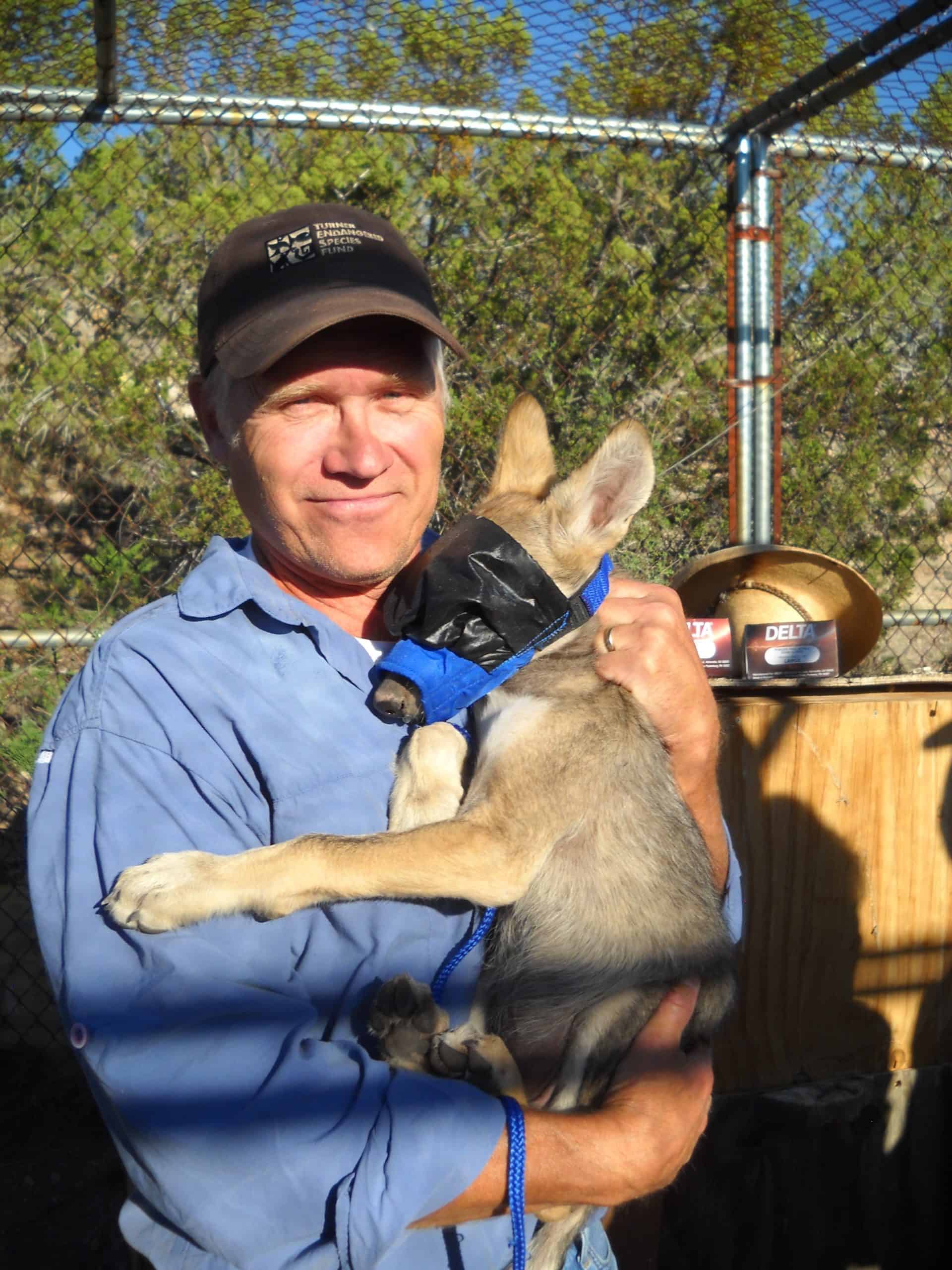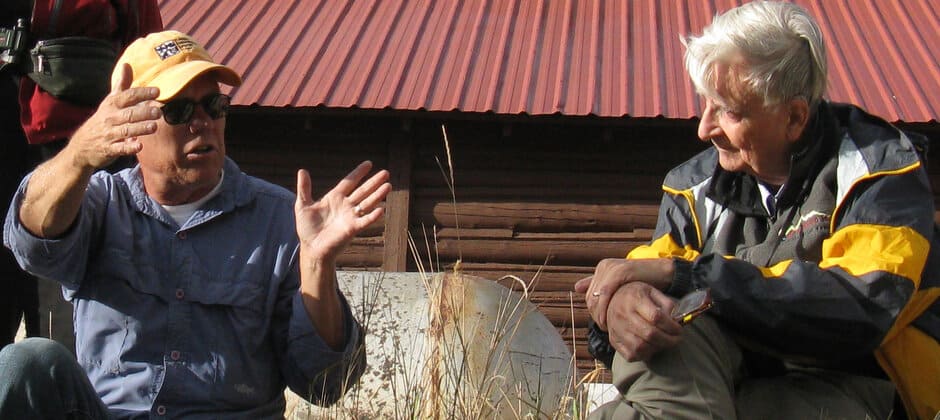Share this article
Mike Phillips first Aldo Leopold winner to hold office
When Michael Phillips was 12 years old in 1970, he recalls flipping through the four channels on his parents’ black and white television and stopping when he got to a National Geographic program documenting the work of Frank and John Craighead. The brothers were working on pioneering grizzly bear research project in Yellowstone National Park.
“I said at 12 years old: ‘I want to do that,’” recalled Phillips, the 2021 recipient of the Aldo Leopold Award, the highest honor bestowed on wildlife biologists by The Wildlife Society recognizing wildlifers’ lifetime contributions to the field.
Phillips had no idea that he’d eventually work in the same area, albeit on a different species — gray wolves (Canis lupus). What’s more, he didn’t have a clue that he would contribute so much to the field that he would earn the same award that John Craighead had won. “I have been blessed to have had relationships with several previous Leopold recipients. I’m proud that I’ve had the chance to work with them,” Phillips said. “Being listed among them is humbling. But it’s been the chance to work with some of them that has been most important.”

Phillips radio tracks wolves in Yellowstone National Park. Credit: Yellowstone National Park
While he was mentored by past recipients, Phillips, now the executive director of the Turner Endangered Species Fund, an organization fighting the extinction crisis through reintroduction efforts, has had a different career path than past winners. He has focused more on restoring endangered species and is the first recipient to have held elected office, being involved in the legislative aspect of wildlife conservation.
“Mike’s contributions to wildlife management and conservation have been major and lasting,” wrote David Mech, a senior research scientist and adjunct professor at the University of Minnesota, in his nomination letter for Phillips.
Phillips’ career has centered around large carnivores. One of his first “real jobs” in wildlife was working with Mech, a past recipient of the Aldo Leopold Award, on a wolf and prey research project in Superior National Forest in northeastern Minnesota in 1980.
Since then, Phillips has had major “aha” moments, where he realized he was exactly where he should be — making a difference in the profession. He has worked as the field coordinator of the Red Wolf Recovery Project with the U.S. Fish and Wildlife Service in North Carolina, overseeing the release of captive red wolves (Canis rufus) into the wild. “This was a highly visible and controversial project, yet Mike handled it expertly, not only the biological aspects of it, but also from the public relations standpoint,” Mech wrote. Phillips recalls being awed seeing the first red wolf pup born in the wild in decades in 1988.
Phillips went on to work in Yellowstone National Park as the first leader of the successful wolf reintroduction program. “It’s inarguable that the Yellowstone wolf project is the most significant wildlife restoration program in the history of mankind,” he said. In fact, he recalls his first encounter with a big male gray wolf in the park right after it had exited release pen. He also remembers flying over the park in 1995 and seeing the first litter of pups at the mouth of the den.
Some projects that he’s most proud of don’t include such large, charismatic species. In 1996, he was satisfied to collaborate with Ted Turner, conservation philanthropist, to develop a broadly based endangered species restoration effort. “Since inception the Turner Endangered Species Fund (TESF) and Turner Biodiversity Divisions have comprised the most significant private effort in the world to combat the extinction crisis through reintroductions,” he said.
About two months ago, TESF biologists released a couple dozen bolson tortoises (Gopherus flavomarginatus) to the Chihuahuan Desert grasslands of New Mexico marking the first time the species has been free-ranging in the wild in the US in over 10,000 years. “The species is a relic from the Pleistocene and provides a new lens for exploring a cardinal question in restoration ecology — restore to what?” Phillips said.

Phillips holds a Mexican wolf pup during its health exam. Credit: Turner Endanged Species Fund
Phillips’ 14 years in the Montana legislature has added another layer to the positive changes he’s made. “I believe if conservation science is not applied, it’s useless,” he said. “And I thought the best way to apply that science was by earning a seat at the decision-making table.”
Most of his legislative work focused on energy and climate change. In 2009, he was instrumental in passing a sweeping law concerning geologic sequestration of carbon. “I can say proudly, that the bill would have never seen the light of day if not for me,” he said. The bill prompted an invitation from the Obama administration to help develop a national strategy for a new energy future.
Despite all of the successes, Phillips’ career didn’t come without challenges. For example, he holds himself responsible for not convincing the U.S. Fish and Wildlife Service to establish a sufficiently expansive region for Mexican wolf (Canis lupus baileyi) recovery. But with that loss came a great success. He worked in Colorado and assembled a political team that successfully passed a ballot measure in 2020 that mandated wolf restoration to the western half of the state. This marked the first time in history that direct democracy had been used to advance endangered species recovery.
Phillips is humbled by and grateful for winning the award reflecting on his past successes. But he stressed that he remains inspired by the future. “What I’m going to do is more important than what I’ve done,” he said, likening it to baseball. “The next bat is always important.”
Click here for a complete list of 2020 TWS award winners.
Header Image:
Phillips and famous biologist E.O. Wilson discuss restoration ecology.
Credit: Carter Kruse, Turner Enterprises, Inc.








